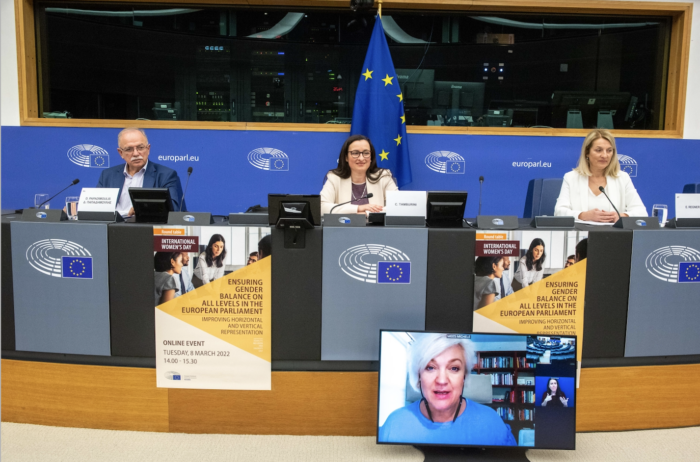The Progressive Post
Time to demand sustainability within EU public finances

Finally, the reflection process to rethink the rules governing the economic coordination in the EU has officially reopened. The Commission’s Public Debate launched on October 19 is the first step toward a new course of action for European economic integration; a difficult nut to crack that will give headaches to the upcoming EU presidencies, but that despite its technical and politically-sensitive content goes at the very core of the democratic foundations of our Union.
It shapes the objective, the scope and the extent to which national and European fiscal policies can be employed. It determines the spending side of the whole public sector in Europe for the years to come. It is a debate that needs scrutiny and oversight; a debate that needs to be opened beside the circle of economic and fiscal experts and political representatives. The European Parliament adopted its position in July providing one of the first cross-party contributions to the debate and demanding a review.
Indeed, the European economy is recovering; however, we are not yet out of the woods. Most importantly, besides the temporary measures employed to manage the pandemic, such as SURE, the Next Generation EU, the deactivation of the fiscal and state aid rules; the overall architecture of the EU economic governance has not been duly upgraded.
Already before the pandemic, the EU faced “an economic context that has significantly changed since the rules were established”, said the Commission back in early 2020. Now, after a new crisis, it is about time to fix the vulnerabilities of the European Fiscal Framework.
It should be clear by now that Europe is not equipped to deal with exogenous and external shocks, which in a globally interconnected world can be many and unexpected. A virus and housing bubble have made pretty harsh damages to our economies. EU leaders and institutions have shown quite some learning in putting patches and quick fixes, but it is now the moment to design a system that can work also in times of recessions. Presently, the stabilisation power of European or national policies is extremely limited and the EU governance framework is short of countercyclical measures.
A second important reason that requires a whole new level of ambition for the European fiscal stance comes from the US. The American Rescue Plan Act of 2021 includes a stimulus package of $1.9 trillion. On top of that, the Build Back Better Plan put forward by President Biden, if endorsed by the US Congress, will project as much of $7 trillion for a Covid-19 relief comprising financing for infrastructure, green jobs, housing, education and health care. While straightforward comparisons of the fiscal responses between the two blocs should be made with caution, Europe must realise that making use of fiscal policy in a responsible way is not a capital sin. Otherwise, the divergence with the US is bound to increase further, endangering the strategic autonomy of our continent and the growth opportunities of EU businesses. We can discuss the role of national and EU capacities, but there is little doubt that as a whole, together, we have to do more.
The limited scope for fiscal policy in Europe somehow collides with the renewed ambitions of leading and accelerating in the ecological and the digital transitions. We have to be honest about the means and the room of maneuver to attain our common objectives.
In light of the ongoing societal changes, as well as of the reflection on the future of our European project, we recommend two things.
First, it is of the utmost importance to provide predictability and stability in this recovery phase. An intermediate solution, limited in time, kicking in when the general escape close is deactivated is necessary. A bridge solution that sustains net borrowing until member states have truly and fully recovered. The Commission must provide 2023’s fiscal guidance by spring 2022 and the general escape clause is not likely to be employed beyond 2022. Despite the demands from civil society, experts and institutions, political conditions are not yet ripe for a new framework in such a short time frame. Though, it is in the interest of everybody to avoid undermining the recovery so that a transitory phase must take into account country-specific timing and pace for deficit and debt reduction. This transition could take the form of a Recovery Compact amending the Stability and Growth Pact as done in 2012 and bringing in a recovery-focused imbalances procedure.
Second, given the big structural challenges ahead of us, we have to rethink what it means to have sustainable public finances. For too long, the focus of EU coordination has primarily been on the sustainability of public finances; we have to expand this concept and design a system ensuring sustainability in public finances. Of course, Europe, and the Euro area in particular, cannot function without a proper framework ensuring the sustainability of public finance, but that is not a goal in itself.
To us, the EU fiscal framework needs to embed sustainability on three axes:
Sustainable growth
The growth strategy of the past decades failed us. We have included a sustainability dimension in the annual growth strategy but we have not yet understood that other big equity concerns are key drivers of economic development. Pushing for regional justice, gender equality and adequate wages can only make our economies stronger. Productive and strategic public investment to attain these goals makes sense even via deficit; to this end the RRF framework offers a unique opportunity to ensure significant structural transformation with EU oversight.
Sustainable investment
To reach the intermediate goal of a 55 per cent emissions reduction by 2030, Europe needs €650 billion a year. While part of this investment can be private, public green investment is a trigger, an accelerator and an indispensable tool to ensure a just transition for those regions, industries and workers who risk being negatively affected. A recent Policy Study led by the Foundation for European Progressive Studies (FEPS) confirms that the impact of a €10 trillion investment initiative over 12 years, in line with the EU climate ambitions, thanks to a rather large government investment multiplier is likely to improve, and not endanger, debt-to-GDP ratios.
Sustainable debt
Public debt levels significantly increased during the pandemic and adjustments of debt reduction will be needed. It is also true that with the current market conditions, debt servicing costs are very low and if the sustainable growth strategy is correct, the economy will bring the debt ratio significantly down. Adjusting the debt target to the new macroeconomic environment would be a no-brainer for many experts (see for instance the proposals by Dullien and co-authors) but it is still a dogma for too many policymakers.
Postponing discussions and solutions would bring us closer to the cliff of repeating the mistakes of the past — fiscal consolidation could hurt the growth potential of the recovering economy. We call all the stakeholders to engage in the public debate. Let’s trust a successful outcome of this public consultation, in forward-looking European institutions and in brave national leaders who see how much we all have to gain from a more ambitious framework assuring sustainability in EU public finances through sustainable growth, sustainable investment and sustainable debt.
Photo credits: Tamas Gabor/Shutterstock




